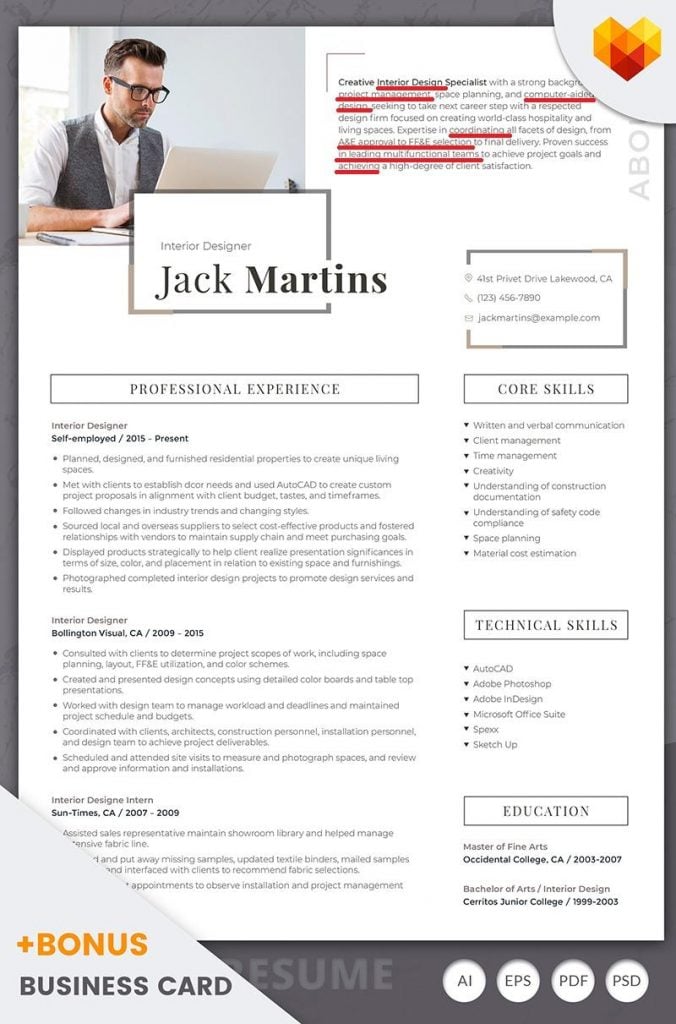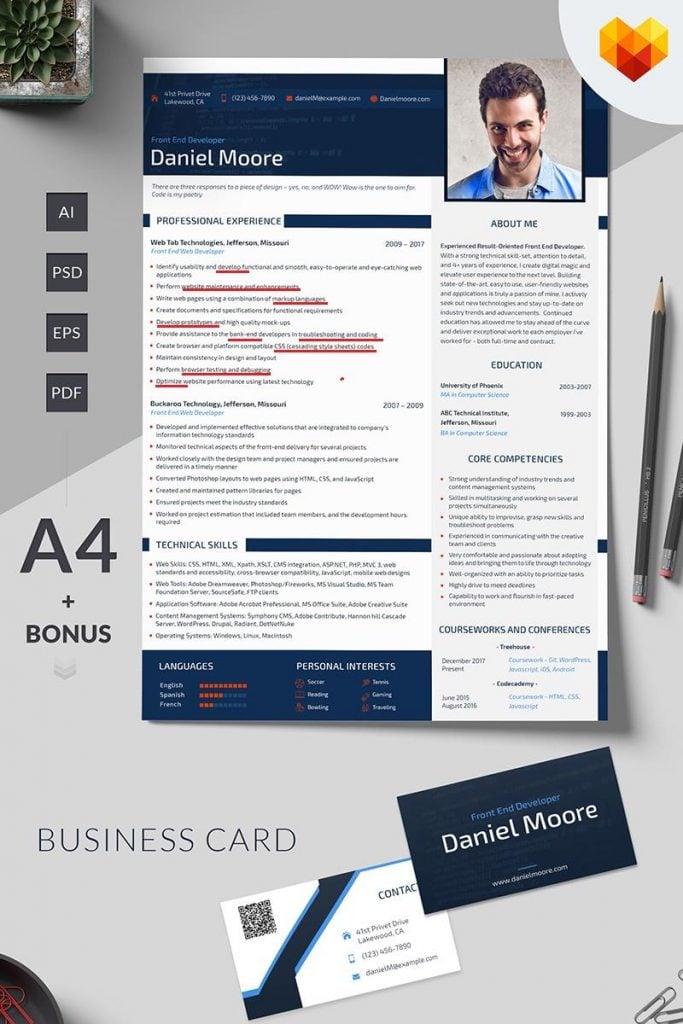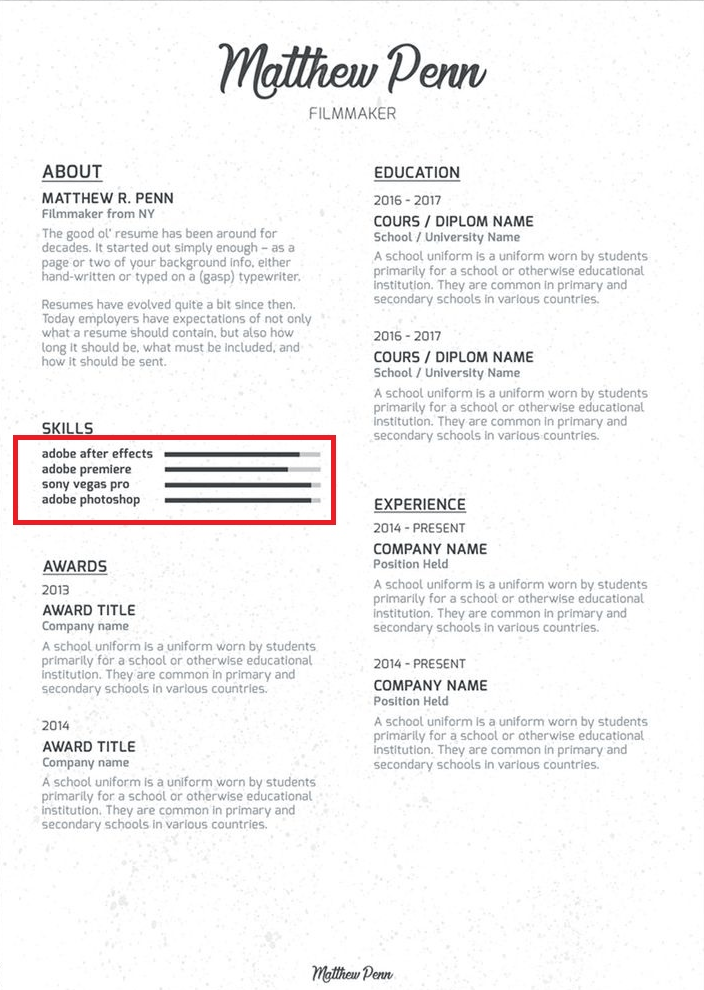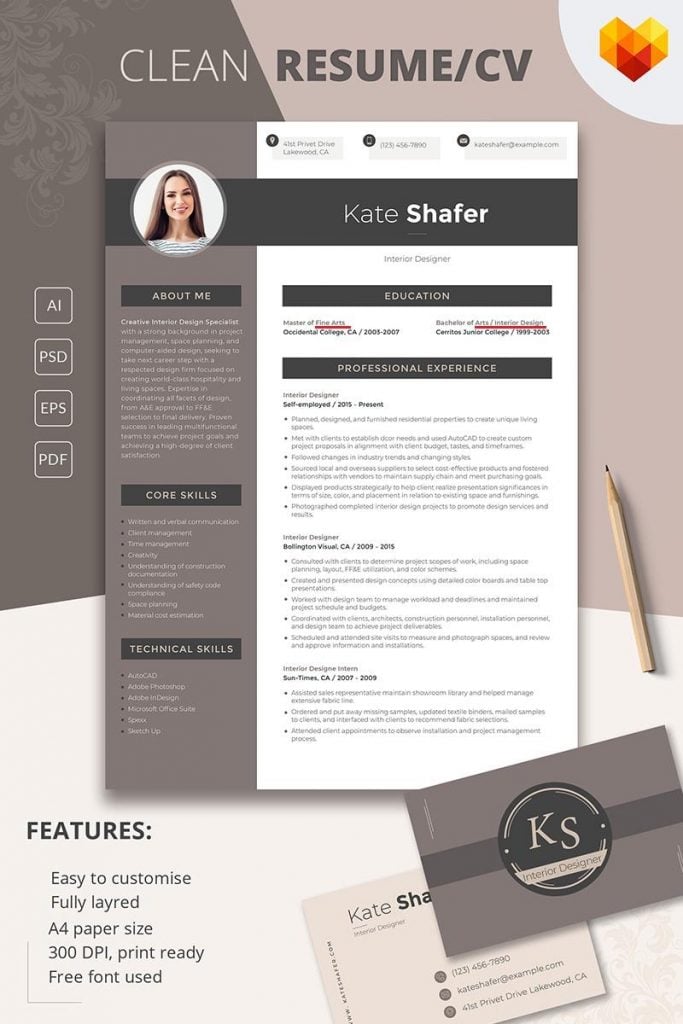How to Make Your Resume Better With Keywords & Phrases
This is the fourth lesson of our Perfect Resume Creation: Ultimate Course. If you would like to get through the whole course – follow the link and subscribe.
Outline:
- What is a keyword for a resume?
- How to find resume keywords?
- How Applicant Tracking Systems (ATS) works
- What keywords to use for your resume
- Where to insert keywords on your resume
- Conclusion
Have you ever wondered why you keep sending your resumes but do not get any response?
Have you ever tried to understand how does the HRs work? They have hundreds of CVs to read every day, especially the ones who hire people for big companies. How do you think, do they read carefully every applied resume? Nope. It would take too much time and bring too little results. Most employers search CVs through, by inserting specialized keywords into an Applicant Tracking System. For your resume to be noticed and selected by your employer, it should include keywords that correspond to the job you want.
What is a resume keyword? Keywords are words and phrases that are related to a particular industry or position. The logic is simple here – if your resume contains those words, it is more likely to be relevant to the position you are applying for, so that’s why resume keywords are an essential part of your CV.
Let’s dig deeper into what is considered to be good resume keywords and how to use them to make a compelling CV.
What is a keyword for a resume?
In SEO optimized texts keywords help the search engines to find the texts that are relevant to user’s needs. So, in the case of CVs, keywords help recruiters to understand if the resume is relevant to the vacancy. Usually, as resume keywords are used the titles of industry-specific skills, professional abbreviations, specific terminology, certificates, product names, computer programs, technical experience, level of knowledge, required personal qualities, company names, etc.
Let’s take a look at the example. You are applying for a Multimedia Designer position. In this case, your resume keywords will be:
- Job-specific skills - business, marketing, bookkeeping, Web Design.
- Software/hardware used – Photoshop, Illustrator, HTML & CSS, SQL, Linux.
- Education – Ph.D., BS.
- Certification – ITIL, CPR.
- Job position – Web Developer, Designer, Project Manager.
- Soft skills – stress-resistance, detail-orientation, conflict resolution.
- Industry jargon - Partner Marketing, PPC (Pay-Per-Click), workflow.
- Action verbs - achieved, developed, improved, participated, built, etc.
How to find resume keywords?
It is rather easy to fill your CV with keywords if you have a list. However, where to find those words and how to understand them are really important?
First of all, analyze the vacancy. Put the text to the keyword analyzer app (for example Textalyzer or find-keyword) and check the most frequently used words. If the company uses them to describe the position – they will also be useful for you. Besides that, you can also check the company’s website and use the keywords from it in your CV.
Of course, the list of keywords will differ for every vacancy but there is still a list of most frequently used words. All the job position descriptions are made by similar HRs so lots of things repeat for them. Jobscan application blog shares a list of 500 most frequently used resume keywords and you can check it and insert the proposed words to your CV.
How Applicant Tracking Systems (ATS) works
ATS can be either a desktop application or an online service (depending on the needs of the company).
Techniques and online resume optimization services are becoming more popular to help applicants get an interview invitation. The functionality of ATS is not limited to data collection and analysis. ATS is also used to automate the recruiting processes according to the selected workflow.
ATS can be adjusted to search for the specific keywords, count the frequency of the keywords, put more value on particular keywords, detect keyword spamming.
What keywords to use for your resume
Think about what keywords are relevant to your profession, what keywords a recruiting team will search for when checking your resume.
To select the most effective keywords, start with reviewing the current open vacancies, which meet your job expectations. Usually, the most important ones are mentioned in the first paragraph. Pick the keywords, which appear in most of the job ads. You can search for the necessary keywords in the job titles and requirements for candidates.
LinkedIn’s skill section is also helpful. You can go to your LinkedIn profile, click «Add skill», and type a skill in the search box to see a drop-down menu showing related skills.
As an option, check the company website to get possible keywords. To show that you are a good fit for the applied position and the company itself, use keywords that the company uses to characterize itself.
Do not lie, use only the keywords applicable to your areas of expertise.
Where to insert keywords on your resume
1. Summary section
Some recruitment specialists consider a summary section to be the best place to include resume keywords. At the very beginning, you inform the employer about your compliance with the desired position and encourage more detailed consideration of your candidacy.
2. Experience history on your CV
ATS is searching not only for a skills section area, but context also. Make sure the relevant keywords are included in your work history block.
3. Skills section
The skills section is the most obvious place of your resume to include the keywords. It specifies your skills and abilities that are related to the position you are applying for.
4. Education and Training
The education and training section of your resume is another area to include the keyword ATS is searching for. Look at the example below.
Here are five quick tips to make your keywords more effective:
- use synonyms/acronyms;
- use location-based keywords;
- spell out obvious skills;
- use keyword analysis tools;
- focus on hard skills, but do not forget to include soft skills as well.
Make sure your resume is both ATS and human-friendly.
Conclusion
Having a well-prepared resume is an excellent way to sell yourself. A recruiter doesn't read every word of your resume; their gaze jumps to keywords that are related to the open position. A top-notch resume has phrases that add value to it. Properly selected keywords will help you get the desired job.
Read Also
Get Your Dream Job with a Professional CV Design [Tips, Tools & Case Studies]
The Most Useful Guide on Marketing Manager Resume Writing
Get more to your email
Subscribe to our newsletter and access exclusive content and offers available only to MonsterPost subscribers.










Leave a Reply
You must be logged in to post a comment.